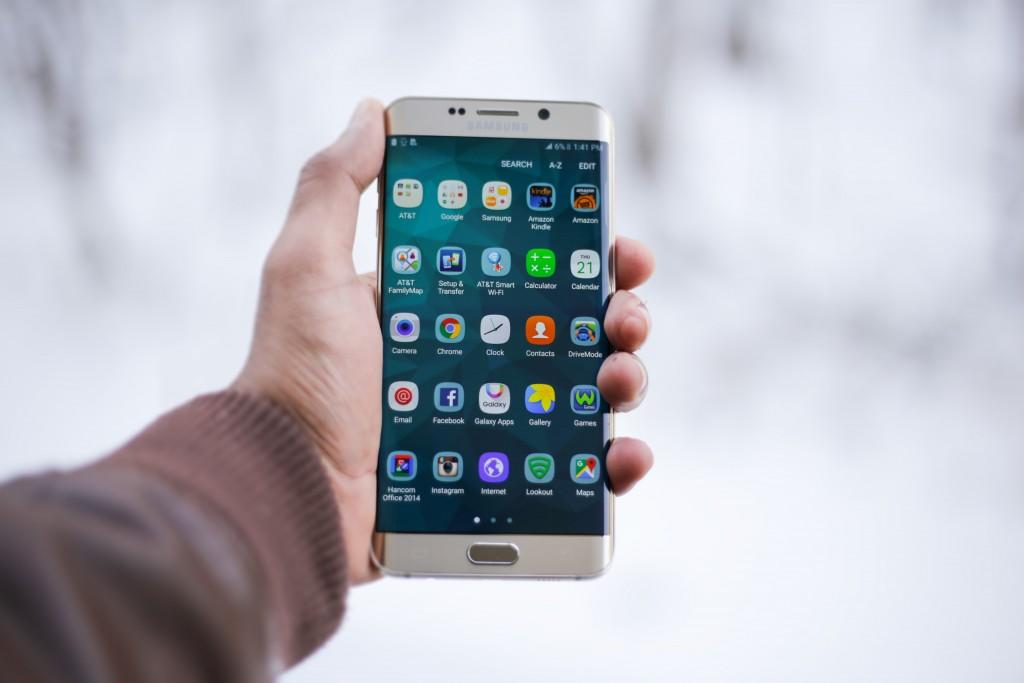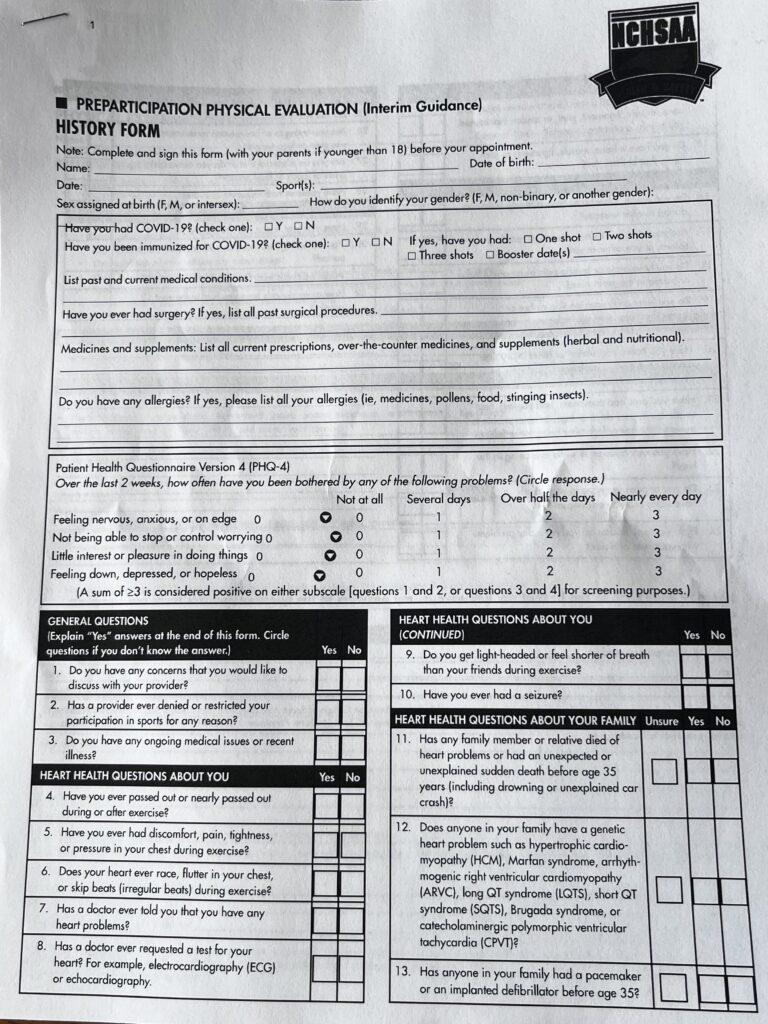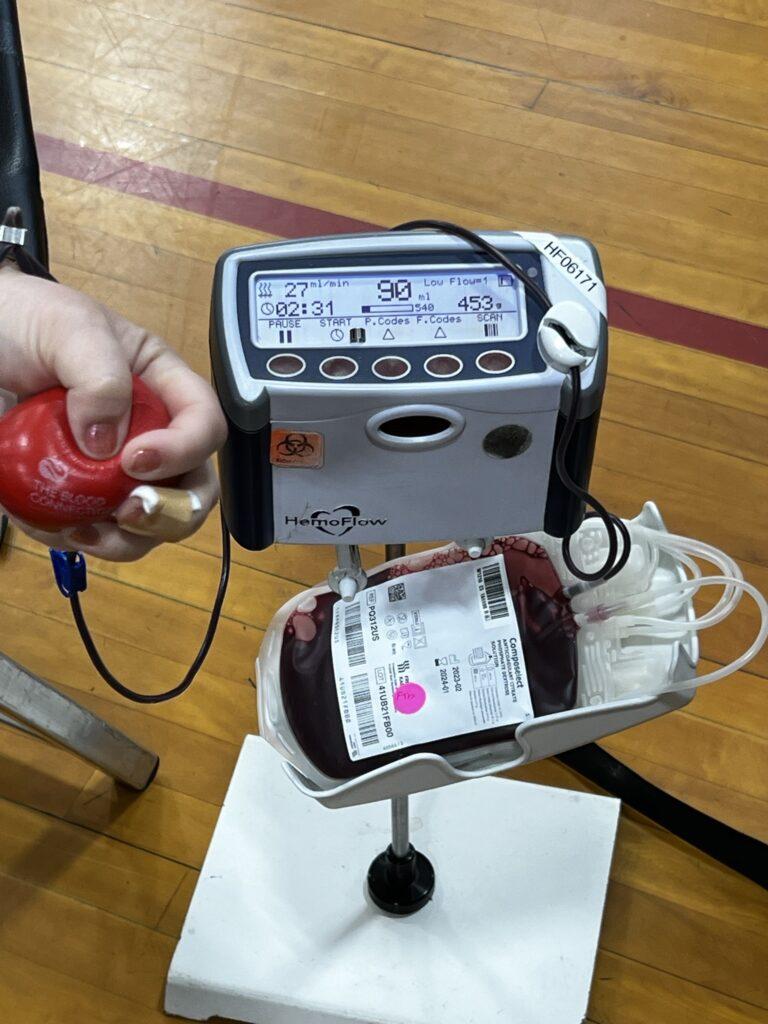Jodie Baker was teaching her class a new math lesson on probability. She was busy writing examples on the board for the students. When she turned around she realized her class was much more interested in the phones sitting in their laps, the phone screens shining light on their faces.
“Students are on their phones too much,” freshman Katie King said. “School is where we sit down and learn and if you’re on your phone, you’re not getting the information you need.”
The West Henderson High School agenda says that electronic devices are not allowed to be used between 7:50 a.m. and the final bell except during lunch or with a teacher’s permission. Students are not allowed to use devices during class changes.
Yet anywhere in school students have their phones on. Whether it’s in the hallways during class changes, the cafeteria or even in the middle of class, their phones are glued to their hands.
“I think phones are very useful when we are allowed to use them but when teachers say that you can’t use them they become a really big distraction,” King said. “You can’t monitor what people do on their phones unless you’re breathing down their neck and there’s only one teacher for every 30 kids.”
Many people think students are not following the cell phone rules. Individual classroom rules can be different than the agenda’s rules but many still think they are not being followed either way.
“Students don’t follow the cell phone rules,” junior Rebecca Davenport said. “In class they’re texting or watching videos and the teachers don’t usually do anything about it.”
Some students think the cell phone rules aren’t working because of lack of enforcement. There are teachers who are more lenient than others on the use of devices.
“I don’t think a lot of people get in trouble for their phones,” freshman Kaitlyn Collins said. “My teacher will say put your phone up but I think they are used but people don’t get in trouble for it.”
Cell phones can be a major distraction in class. Students often use their phone in class to text, go on Instagram and Twitter, or Snapchat their friends.
“In class I think it’s so easy to be on their device,” King said. “If they don’t put it in their lap they put it next to their hip. If they’re not facing the teacher or if the teacher is in the back of the room it’s so easy for the teacher not to see.”
When students are focused on their phone in class they miss valuable information being taught that would help them understand the subject and do well on tests.
“Students should be allowed to use their phones at school if they are working on school related activities,” Baker said. “They shouldn’t be using them for Instagram and Snapchat.”
Teachers and administrators have to deal with students not following the cell phone rules daily. Consequences of violating the cell phone rules are confiscation of the device and In School Suspension (ISS).
“I would say we have several students each week,” Shannon Auten, assistant principal, said. “I think it’s a fantastic learning tool but it can also be a major distraction while you’re using it as a learning tool.”
Some teachers are using creative ways to keep phones from interfering with learning. Vanessa Price, social studies teacher, has what she calls a cell phone jail. A gray box with the words “Cell Lock-up” on the top and prison bars on it sit on a desk next to the door.
“When I see a student’s cell phone the first thing I ask them to do is put it up,” Price said. “If I ask them to put it up again, I’ll take it from them and put it in the cell phone jail.”
Some teachers also use phones as a valuable educational tool in class.
“We use phones for academic purposes regularly,” Kathleen Abraham, science teacher, said. “We also use phones for review games, interactive tutorials and webquests. I even use my phone to scan quizzes.”
Phones are now being used more in schools across the country. Many students use their devices to work on homework and class assignments.
“My science teacher does our homework online,” Collins said. “Everyday I do my homework on my computer and phone.”
With more technological advances happening all the time, there is the possibility of schools having to allow phones more. Cell phone rules in the future could possibly be more lenient about the use of devices.
“It’s probably going to be less strict in the future,” Davenport said. “We are starting to use technology more in the classroom and next year we will have the Chromebooks to use at school.”
On the other hand, some people think that schools could start making the personal device rules stricter.
“I think they’ll try to make it more strict,” King said. “It’s just not going to work because it’s going to be easier to access technology than it is today.”
There are already schools who have completely banned phones. New York City public schools have lifted the ban they had but other schools have kept it.
“It will probably be stricter because every kid has a phone in their hands,” Collins said. “It’s going to get more strict as technology advances.”
While students are sometimes allowed to use devices in class they are more often not used for school related reasons. Phones can be useful in class but students and teachers agree that when students do not follow the cell phone rules it can become an issue.
“I think the rules are very reasonable,” King said. “But because they are so reasonable it is very easy to get around them.”
By Bryn Bowen







